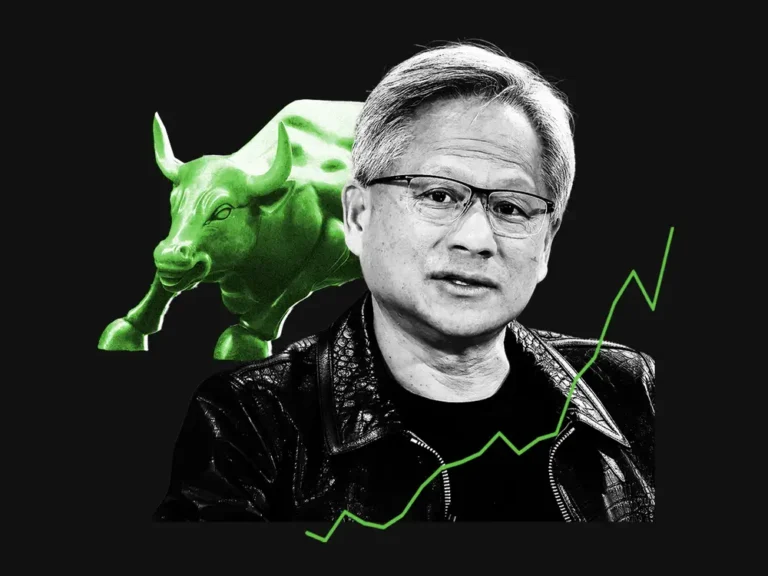Has enthusiasm for electric cars waned?

General Motors, Ford, and Tesla have all warned of an electric vehicle slowdown due to a drop in demand.
General Motors, Ford, and Tesla have all warned of an electric vehicle slowdown due to a drop in demand.
Automakers primarily blame higher borrowing costs, but some car dealerships claim that EVs sit longer than regular cars. According to them, consumers are concerned about the range of EVs and the lack of infrastructure.
According to a Cox Automotive survey, 53% of consumers believe EVs will eventually replace internal combustion engines, but only 33% of dealers agree. According to several dealerships interviewed by CNBC, EVs are taking longer to sell and have a supply and demand imbalance.
Ford announced two weeks ago that it would increase production of its hybrid F-150 pickup trucks due to decreased demand for its all-electric model.
EV advocates insist that demand remains strong, but that consumers are only temporarily hesitant due to high interest rates, which make EVs – which are typically more expensive than the average car – more difficult to purchase.
Q: Has interest in electric vehicles waned?
Phil Blair, Human Resources
YES, but only for a brief moment. As someone who has only purchased all-electric vehicles in the last five years, I believe they are the future of automobile transportation. Yes, there has been a lull. Interest rates, concerns about a lack of charging infrastructure, and the availability of lower-cost models are all valid concerns. The presence of charging capabilities in new homes is a telling sign.
London Moeder Advisors’ Gary London
NO: It often takes decades for technological breakthroughs to gain market acceptance. Electric, hydrogen, and other vehicle technologies are still in their infancy. Range anxiety, cost, and even their actual contribution to lowering the overall carbon footprint will all be addressed in due course. Personal experience: I am currently driving my second electric vehicle. They drive better, are easier to manufacture, and have better technology. They’re also more enjoyable to drive.
Alan Gin, University of California, San Diego
Yes, higher interest rates make purchasing more expensive electric vehicles more difficult. Another factor is that gas prices have dropped following a recent surge. However, one major reason could be that early adopters of the technology have already invested heavily in EVs. Obtaining the next tier of customers may necessitate a game changer, such as Toyota’s solid-state battery technology, which could increase range to 700 to 900 miles while reducing charging times to less than 10 minutes.
R.A. Rauch & Associates, Bob Rauch
Yes, enthusiasm for electric vehicles has waned, though the number of EVs continues to grow. GM is postponing the opening of a large electric-pickup-truck factory in Michigan, and Ford is considering canceling a factory shift for its electric F-150 Lightning pickup. Despite steep price cuts, Tesla’s vehicle deliveries are still increasing, but at a slower pace. Concerns have been raised about charging vehicles on long journeys, prices, and government subsidy requirements.
UC San Diego’s James Hamilton
YES: Or, at the very least, the rate of sales growth has slowed. The first wave of EV buyers were higher-income households concerned about the environment. Other demographic groups’ adoption rates may be slower. Higher interest rates have historically depressed all vehicle sales while discouraging sales of more expensive vehicles such as EVs. The ultimate transition is unavoidable, but it may take longer than some predicted a year ago.
Austin Neudecker works for Weave Growth.
NO: As with any new technology, EVs were initially purchased by enthusiastic technophiles and idealists. Today’s economic conditions are favorable for many consumers, particularly those who own single-family homes. Higher interest rates, a recent shopping spree, and unfamiliarity are all causing a temporary drop in demand. Others have been put off by the unknown — range/charging/tech — and the timing of car replacement. More exposure, improved range, increased competition, gas price uncertainty, and environmental awareness will all drive widespread adoption over time.
Scripps Health’s Chris Van Gorder
NO: I believe there is still a desire for EVs, but as previously stated, high interest rates, a lack of necessary infrastructure, and the vehicles’ limited range will slow sales. Sales will increase as range capabilities, infrastructure, and charging speeds improve, while costs and interest rates fall. As drivers begin to test EVs, electric hybrids will continue to bridge the gap.
Norm Miller, University of California, San Diego
NO: EVs remain relatively more expensive cars for the time being, despite being less expensive to own. When consumers’ budgets are subject to higher interest rates, they switch to lower-cost substitutes. A gas Subaru Crosstrek starts at $24,995, while an electric Subaru Solterra starts at $44,995. For the average consumer, this is a significant difference. Higher interest rates have made higher-priced options, including EVs, less appealing. EVs are here to stay and will eventually become more affordable as batteries become less expensive. I’ve only driven it since 2012.
Franklin Revere, Jamie Moraga
NO: Consumer interest in electric vehicles remains strong, and it will only grow as battery technology and long-distance supercharging networks improve. If cost has been an issue, automakers such as Tesla have recently reduced prices on some of their models, and interest rate hikes are finally leveling off. With gas prices rising, an EV remains a viable option for long-term fuel savings, lower maintenance costs, and EV tax breaks.
San Diego State University’s David Ely
YES: It is natural for enthusiasm to wane now that early adopters have purchased EVs. Many buyers are delaying the switch to EVs due to range anxiety and high interest rates. EV sales are still increasing, albeit at a slower rate. EV sales growth would be slower if manufacturers did not make significant price cuts. This suggests that demand is falling short of expectations and that supply needs to be brought back into line.
SANDAG’s Ray Major
Caroline Freund, University of California, San Diego School of Global Policy and Strategy
NO: Despite waning enthusiasm for Tesla CEO Elon Musk, EVs remain hot commodities, with a slew of new models hitting the market. Adoption of new technologies typically follows a S curve: it is slow at first, then accelerates, and finally levels off. Electric vehicle sales are no exception. Sales were relatively flat from 2010 to 2020, then increased in 2021 and are expected to remain strong for some time before flattening.
San Diego County Taxpayers Association’s Haney Hong.
NO: While financing a car is more expensive, gas prices have skyrocketed. In addition, federal and state tax breaks are substantial. I know anecdotally that many people are still interested in EVs, as there are numerous reasons for someone to buy one. If there is any waning, it is likely to be less severe than the drop in demand for gasoline-powered vehicles.
San Diego Institute for Economic Research’s Kelly Cunningham
YES: Electric vehicles continue to see promising technological advancements, but there are limitations to potential applications that may not meet all transportation needs. Costs and risks should not be imposed on lower-income citizens in order to benefit wealthy investors and buyers. Electric vehicles will continue to be a significant undertaking for those capable and willing to accept inherent risks. Governments should not impose mandates or subsidize developments that may be ineffective or counterproductive.
Lynn Reaser is an economist.
YES: A number of factors are slowing sales beyond the early adopters. First and foremost, the limited range is a major concern. Second, the time it takes to recharge is a multiple of the few minutes it takes to fuel an internal combustion engine vehicle. Third, the scarcity of charging stations is impeding sales. Fourth, even with various subsidies, higher prices are a problem. Fifth, the inflammatory risk of batteries is cause for concern. Finally, poor performance in cold climates is a constraint.






